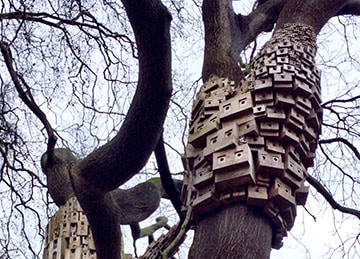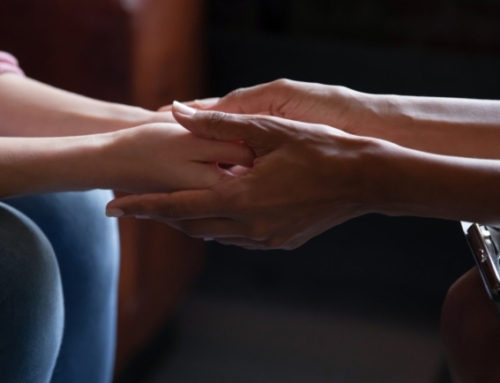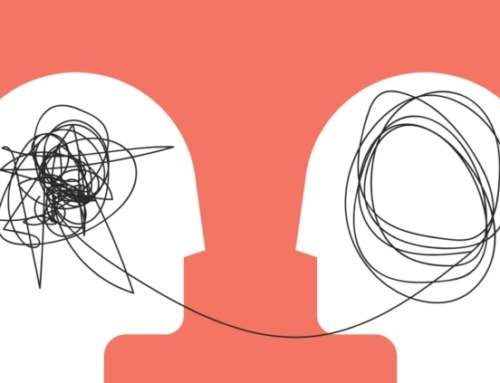Today I share with you one way that people experience hurt. It is the first of an irregular series in which I discuss the different ways people experience hurt, whether it’s a type of sadness, fear, anger, disgust or sense of meaninglessness. Why bother with such an endeavor? I contend that the foundation of a therapeutic alliance with a patient is our ability to understand and appreciate their form of hurt; and, in turn, that the therapeutic alliance is the foundation that permits the patient’s self-healing. So, let me dive right in with this first installment.
Existential Aloneness
We’ve all felt some degree of aloneness, even at times prominent and painful aloneness. Whenever I’ve been in such a state of mind – which would take hold of me more often earlier in my life – I always felt a floor beneath me. I knew that this dysphoric feeling was more a sense of loneliness rather than aloneness. In loneliness, the person believes that they are not truly alone in the world; that there are other people in the world who know and care for him or her. During my lonely times, I felt separated from my loved ones, and felt that I should do more to make more friends and develop a richer and more supported social life. My feelings of loneliness were of a different order of magnitude from that of a patient I once treated, from whom I learned much about human nature.
Weekly Photo
Today I present some three-dimensional neighborhood art. These bird houses, over three hundred of them, are called “Spontaneous City” and are located at the Duncan Terrace Gardens in Islington, London, England. It’s part of the “Secret Gardens Project” across green spaces in London.
She was a woman with a lifelong pattern of emotional dysregulation and conflictual relationships. Now, in her 40’s, the emotional storms had quieted, although she continued to have occasional emotional and verbal scuffles with people. Now, she spent much more time alone.
During one appointment time with me – I was her medication prescriber of her SSRI, which she reported helped her remain more emotionally stable – she plopped down on the chair and before I said anything, began to describe to me her pervasive inner experience. She said that she felt “all alone in the world, like there is no one else in the entire universe that understands or cares about me.” I listened carefully for the entire two minutes – my good – and then responded with some sort of paraphrasing of what she said in an attempt to show her I understood. Almost immediately, I realized my “intervention” did not go over well – my bad.
She said, “No, no, no. You don’t understand! This is not a regular kind of ‘I’m lonely.’ Don’t you understand that I am all alone in the world, in the entire universe!?”
Her vehemence caught me off-guard – perhaps why I remember this interaction so well. But more importantly, she got through to me: I did see how my words conveyed that I really didn’t understand: she was describing an existential level of complete aloneness, like that of a satellite in the dark and cold of interstellar space, not being launched from home nor ever having a chance of arriving in anything resembling a home, and likely continuing to forever drift in the emptiness of space. My words would have been appropriate to someone who simply felt lonely, but wildly inadequate to her experience.
Her story was that she was an abused and neglected child. When she spoke to me about her complete aloneness, she was speaking as the child that she was would have, a vulnerable little person being abused by the very people that should have cared for her. There was no safe place to go to or no safe person to turn to for her; there was no respite or refuge. She truly was all alone in the universe, from her earliest days. Once such an embodied feeling and realization is set it can never truly be overcome. She could never assume that, ultimately, all is right with the world because really, ultimately, she – and everyone else – is always fundamentally, irrevocably alone.
With my realization, I felt great sadness at that moment. I glimpsed her reality. And I also realized that there was nothing I could do to help her fully overcome that experience. She would never be made whole.
Now, I’m not a nihilist, either by nature or training. I believed she could attain a modicum of respite, comfort, happiness, and friendship, and had already made some strides towards them. After all, to varying degrees and in differing ways, most of us are damaged goods and, yet, we go on and have much to offer the world.
Until next time,
Dr. Jack
LanguageBrief
Today’s Quotes
“later that night
I held an atlas in my lap
ran my fingers across the whole world
and whispered
where does it hurt?
It answered
everywhere
everywhere
everywhere.”
― Warsan Shire“Something opens our wings.
Something makes boredom and hurt disappear.
Someone fills the cup in front of us: We taste only sacredness.”
– Rumi







Leave A Comment